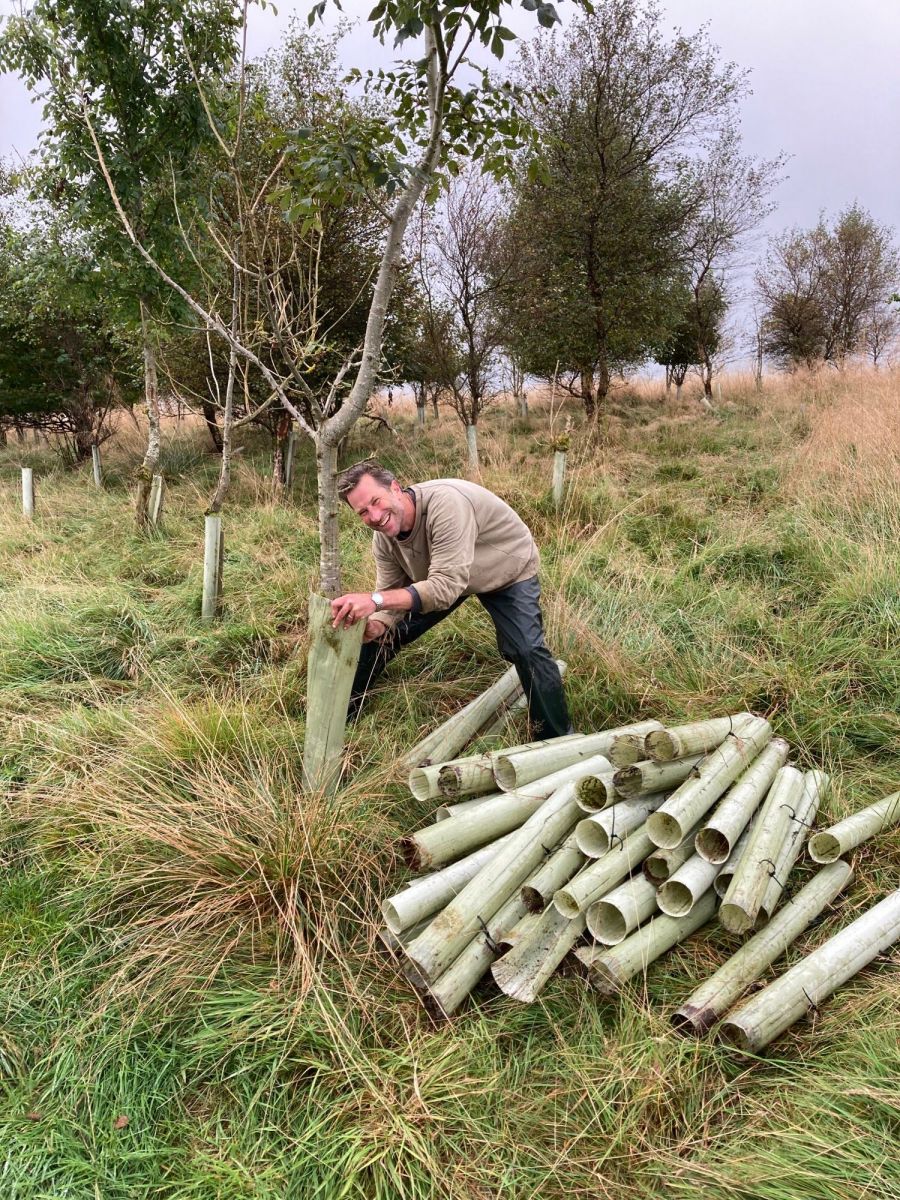National Park campaigners call for a ban on plastic tree guards
Campaign for National Parks, Friends of the Dales, Friends of the South Downs and nine other National Park Societies have joined forces to call for a ban on plastic tree guards.
The campaign coincides with a Defra call for evidence over problematic single-use plastics – which the National Parks campaigners have responded to, highlighting the ongoing issue of plastic tree guards.
“We want to see a complete end to the use of single-use plastics in the supply of tree guards (much of which will inevitably become highly polluting micro-plastics),” says the joint response, “as well as the introduction of more effective controls and auditing in order to require a greater focus on recovering old tree guards and preventing further pollution.”
National Park Societies join forces
11 National Park Societies in England and Wales have joined Campaign for National Parks, the only independent charity campaigning to protect and improve all National Parks in England & Wales, in signing a joint statement (see full text below) urging National Park Authorities to restrict the use of new plastic tubes for tree and hedge planting in National Parks by the end of 2022.
It follows a commitment from The Woodland Trust to stop using plastic tree guards on their estate by the end of 2021, and efforts by the National Trust to explore, and trial, alternative options – moves supported by National Park Societies and Campaign for National Parks. Yorkshire Dales Millennium Trust is also embarked on a plastic-free woodlands project to remove redundant plastic tree guards and champion alternatives.
Friends of the Dales Chair Bruce McLeod says: “Society and governments are increasingly calling for a reduction in plastics in the environment. Due to the Climate Crisis and declarations of a climate emergency, they are also calling for an acceleration of tree planting in order to sequester carbon and off-set carbon emissions. We believe that an increase in tree planting should not equal an increase of plastic in the environment.
Part of the problem, not the solution
“Plastic tree guards are a product of the fossil fuel industry, thereby a contributor to global heating. We support the collection and recycling of redundant tree guards. However, the size of that task only serves to underline that we should not add to this waste. There must be more accountability for the removal of plastic tree guards once they have served their purpose. Alternative (compostable) guards and methods of woodland creation are increasingly being used; they replace the polypropylene tubes that have a life span of centuries either in dumps, other plastic products or as micro plastics in the ocean and soil.”
Campaign for National Parks Policy and Research Manager Ruth Bradshaw added: “Our National Parks and the Climate Emergency report released last year explored how National Parks were adapting to, and mitigating climate change. There are huge efforts underway to do both and it’s clear that tree planting has a role to play in this, but the benefits – carbon capture, habitat creation etc. – are undermined when each sapling is surrounded by a new, single-use plastic tree guard.
“Plastic waste is a huge issue in National Parks – from the carbon footprint of making such disposable items to the long-term impact on the landscape of non-biodegradable items. Plastic tree guards are part of the problem, not part of the solution and we must treat them as such.”

Chair of Friends of the Dales Bruce McLeod removing plastic tree guards
Joint statement:
Society and governments are increasingly calling for a reduction in plastics in the environment. Due to the Climate Crisis and declarations of a climate emergency, they are also calling for an acceleration of tree planting in order to sequester carbon and off-set carbon emissions. However, we believe that an increase in tree planting should not equal an increase of plastic in the environment.
We believe that the current practice of using plastic tree guards in woodland creation is unsustainable. Plastic tree guards are a product of the fossil fuel industry, thereby a contributor to global heating. We support the collection and recycling of redundant tree guards. However, the size of that task only serves to underline that we should not add to this waste. There must be more accountability for the removal of plastic tree guards once they have served their purpose. Alternative (compostable) guards and methods of woodland creation are increasingly being used; they replace the polypropylene tubes that have a life span of centuries either in dumps, other plastic products or as micro plastics in the ocean and soil.
Major tree planting organisations such as the Woodland Trust have decided to cease using plastic when planting by the end of 2021. We support this sea change in our relationship to single use plastics, woodland creation and the natural world. We support the campaign to reduce single use plastic in our National Parks and the landscape.
In an unprecedented show of unity, and supported by the Campaign for National Parks, National Park Societies throughout England and Wales call upon the national park authorities to radically reduce the blight of plastic tree guards in our precious and protected landscapes. Further, we challenge National Park Authorities in England and Wales to make a similar pledge to that made by the Woodland Trust in 2021: to restrict the use of new plastic tubes for tree and hedge planting within the National Parks by the end of 2022.
Signatories:
Friends of the Dales, Friends of the South Downs, Snowdonia Society, North York Moors Association, Exmoor Society, Brecon Beacons Park Society, Friends of the Pembrokeshire Coast National Park, Friends of the New Forest, The Broads Society, Friends of the Peak District, Dartmoor Preservation Association and Campaign for National Parks.
